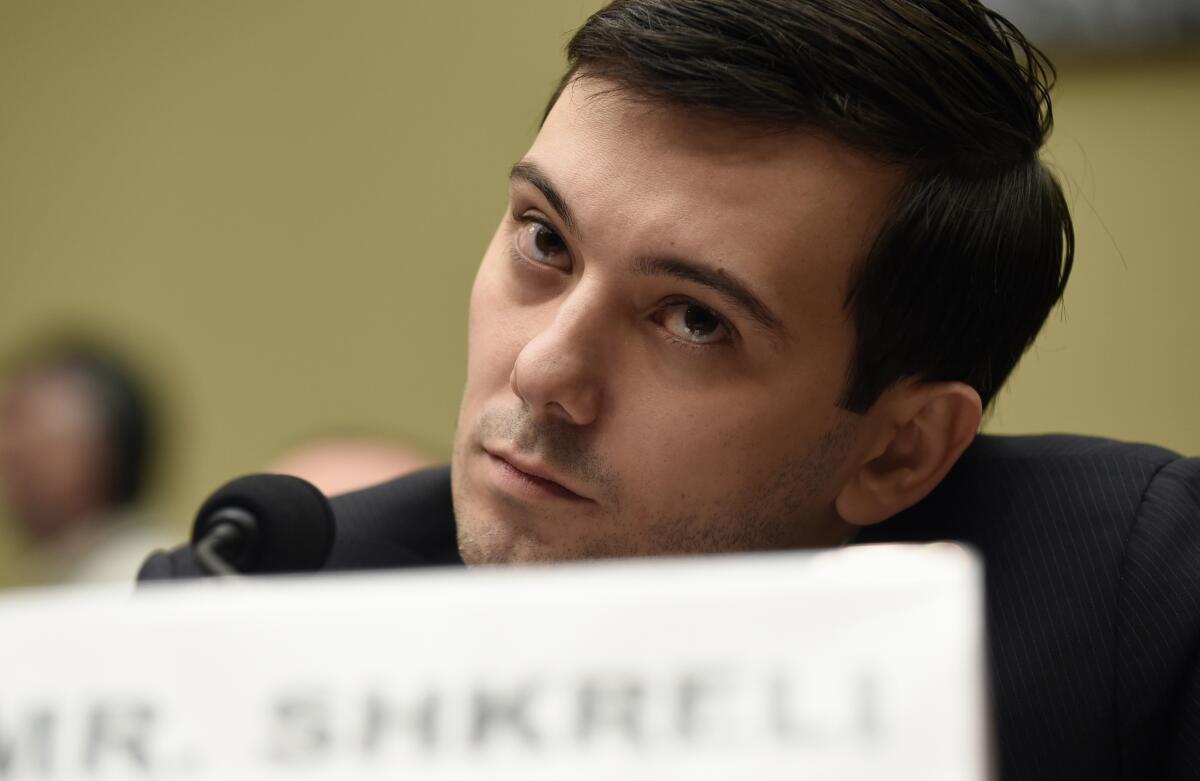Martin Shkreli ordered to return $64 million, barred from drug industry

NEW YORK â Martin Shkreli must return $64.6 million in profits he and his former company reaped from raising the price of the life-saving drug Daraprim, a federal judge ruled Friday while also barring the provocative, imprisoned ex-CEO from participating in the pharmaceutical industry for the rest of his life.
U.S. District Judge Denise Coteâs ruling came several weeks after a seven-day bench trial in December. The Federal Trade Commission and seven states brought the case in 2020 against the man dubbed âPharma Broâ in the media.
Shkreliâs lawyer did not immediately respond to a request for comment.
Shkreli was CEO of Turing Pharmaceuticals â later Vyera â when it jacked up the price of Daraprim from $13.50 to $750 per pill, after obtaining exclusive rights to the decades-old drug in 2015. It treats a rare parasitic disease that strikes pregnant women, cancer patients and AIDS patients.
He defended the decision as capitalism at work and said insurance and other programs ensured that people who need Daraprim would ultimately get it.
But the move sparked outrage from medical centers to Congress to the 2016 presidential campaign trail, where Hillary Clinton termed it price-gouging and future President Trump called Shkreli âa spoiled brat.â
Shkreli eventually offered hospitals half off â still amounting to a 2,500% increase. But patients normally take most of the weekslong treatment after returning home, so they and their insurers still faced the $750-a-pill price.
He resigned as Turingâs CEO in 2015, a day after he was arrested on securities fraud charges related to hedge funds he ran before getting into the pharmaceuticals industry. He was convicted and is serving a seven-year prison sentence.
Vyera Pharmaceuticals LLC was sued in federal court in New York by the FTC and seven states: New York, California, Illinois, North Carolina, Ohio, Pennsylvania and Virginia.
They alleged that Vyera hiked the price of Daraprim and illegally created âa web of anticompetitive restrictionsâ to prevent other companies from creating cheaper generic versions by, among other things, blocking their access to a key ingredient for the medication and to data the companies would want to evaluate the drugâs market potential.
Vyera and its parent company, Phoenixus AG, settled last month, agreeing to provide up to $40 million in relief over 10 years to consumers and to make Daraprim available to any potential generic competitor at the cost of producing the drug.
Former Vyera CEO Kevin Mulleady agreed to pay $250,000 if he violates the settlement, which barred him from working for a pharmaceutical companyâ for seven years.
Shkreli proceeded to trial.
More to Read
Inside the business of entertainment
The Wide Shot brings you news, analysis and insights on everything from streaming wars to production â and what it all means for the future.
You may occasionally receive promotional content from the Los Angeles Times.










